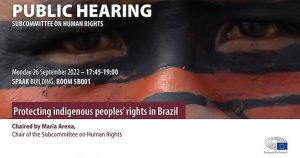Mr Gaddafi is charged by the ICC with two counts of crimes against humanity (murder and persecution) allegedly committed across Libya from 15 until at least 28 February 2011. On 1 May 2012, on the basis of the ICC founding principle of complementarity, Libya challenged the admissibility of the cases before the Court claiming primary jurisdiction over Mr Gaddafi who is currently subject to domestic proceedings. On 31 May 2013, Pre-Trial Chamber I rejected Libya’s challenge and ordered his transfer to The Hague. The Government of Libya appealed the decision on 7 June 2013.
Statement by Alison Smith, Legal Counsel and Director of the International Criminal Justice Program of No Peace Without Justice:
“No Peace Without Justice (NPWJ) and the Nonviolent Radical Party, Transnational and Transparty (NRPTT) regret today’s decision by the ICC Appeals Chamber ruling that the Saif al-Islam Gaddafi case is to proceed in The Hague instead of Libya. This ruling, which reaches Libya in a very delicate moment for its transition to democracy, risks to further deepen the ongoing crisis and to give another blow to the trust of the Libyan people in the capacity of their State to administer justice on crimes under international law committed on its territory by its citizens. It also contradicts the aspirations of Libyans to see the alleged perpetrators be tried in Libya and to face justice in the same place where the crimes were committed.
“Without underestimating the serious challenges that the Libyan judicial system faces and the serious security concerns of the current crisis, we need to recall that Libya remains positively eager to investigate and prosecute those who allegedly bear the greatest responsibility for the serious crimes committed during the revolution. The legitimate concerns related to the ability of the country’s judicial authorities to conduct trials with fairness, impartiality and strict adherence to due process would be more appropriately addressed by providing assistance to enable authorities to abide by these rules according to the highest international standards. The international community should provide technical support to local authorities and civil society, including to monitoring mechanisms such as the Libyan Trial Monitoring Network, established in August 2013 with the support of NPWJ, which is monitoring very closely the proceedings of the Gaddafi trial in Tripoli. This could play a unique and significant role in supporting judicial reforms and enhancing the fairness, effectiveness and transparency of the Libyan judiciary.
“We should also remind ourselves that Mr Gaddafi is only one of the thousands of people who are being formally or informally detained, in abysmal conditions, since the end of the revolution and are still waiting to be prosecuted. The Gaddafi trial before the Libyan Court, case no. 177-2014, involves 37 people, including Abdullah Al-Senussi and other former top leaders of Muammar Gaddafi regime. Why Saif al-Islam Gaddafi is singled out by the ICC for transfer to The Hague is a question that Libyan observers raise repeatedly in Tripoli. These people deserve a clear answer from the ICC, which the Court can only provide by engaging the population through a serious and well developed outreach campaign in Libya.
“After decades of dictatorship and illegality, we look forward Libya demonstrating its ability to break with the legacy of impunity and abuses that typified Muammar Gaddafi’s rule with a new respect for the rule of law and to meet the promise of justice and redress for the victims and their families. Libya needs assistance to achieve its aspirations to live by the principles and ideals for which the revolution was fought. If the ICC wants to contribute successfully to this process, it needs to do better than today’s ruling.”
NPWJ in Libya
NPWJ has been working on the Libyan transition since early 2011 and has been on-the-ground since early October 2011. It has had a permanent presence in Tripoli since March 2012 and has been working to create a network of Libyan actors to engage different sectors of Libyan society on transitional justice. Its work in Libya combines the provision of transitional justice information (both in cooperation with the institutions and in partnerships with civil society), including on outreach and documentation, with research and analysis of public expectations and perceptions. NPWJ is partnering with a wide range of civil society organisations from across the country, including both more established and emerging ones. It aims to help build and reinforce the capacity of Libyan actors, including NGOs, academics, lawyers and media, public authorities and opinion-leaders, to play their role in incorporating accountability, human rights and the rule of law in the democracy transition and post-conflict reconstruction of their country. On the institutional side, NPWJ is working with the Ministry of Justice, and its Higher Judicial Training Institute, in providing training and expertise to the judges and prosecutors who have been charged with the enormous task of dealing with those suspected to have committed or directed atrocities during the conflict, and during the previous regime. NPWJ has also established a trial monitoring program, which is being run in collaboration with the Tripoli Bar Association and aims to promote transparency and accountability within the Libyan judiciary.
Documentation
- Download the Handbook “Supporting Trial Monitoring in Libya” (in pdf version)
- Visit the special page on No Peace Without Justice’s Transitional Justice Program in Libya
For further information, please contact Alison Smith on asmith@npwj.org or +32-(0)2-548-3912 or Nicola Giovannini on ngiovannini@npwj.org or +32-(0)2-548-3915.



